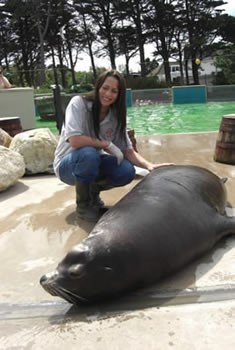KESS PhD student talks about his experiences, John Walsh’s KESS project, economic benefits of anaerobic digesters.
Read more »Case Studies: pathogens
The role of estuarine sediments as a reservoir for pathogenic microorganisms (Presentation)
Anthropogenic activity resulting from agriculture, storm water discharge and sewage treatment has a significant impact upon the transport of human microbial pathogens from catchment to coast. As the global climate changes and storm and flood events become more frequent, it is imperative that we understand how the increased flow of microbial pathogens from land to sea will affect human health and the environment.
Read more »Anaerobic Digestion: its potential to improve the economic and environmental performance of organic farming systems (The Academic Perspective)
What this project did that was different from other projects was that it placed an economic value on the environmental benefits that anaerobic digestion can offer over the short term. Over the long term, this type of work has the potential to offer wider societal benefits, for instance an improvement in water quality; this in turn can affect the tourism industry, water companies and so on. In addition to this is of course the fact that anaerobic digestion provides a source of renewable energy, reducing CO2 emissions. There are many people who can benefit financially from the results of this research, the taxpayer benefits, as do large, medium and small private companies; so there are many economic and environmental advantages and I think that this is highlighted in the project.
Read more »James Wilson, Deepdock Ltd (The Business Perspective)
Student: 1. Ben Winterbourne, 2. Katie Clements Company: Deepdock Ltd Academic Supervisor: Dr Shelagh Malham & Prof David Jones Developing a relationship with Bangor University was made easier by the fact that Deepdock is run by graduates. We’ve worked with other parts of the University over the years, through other funds and opportunities available, and have… Read more »









